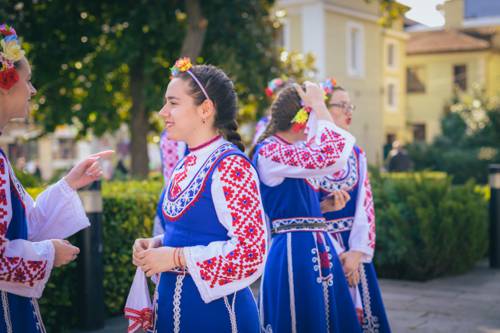
FAQ About The Role of Modern Folk Tales in Cultural Preservation

What are modern folk tales?
Modern folk tales are contemporary stories that are rooted in traditional folklore but have evolved to include modern themes, settings, and characters. They often blend cultural elements from the past with current societal issues, acting as a bridge between past traditions and present-day life.

How do modern folk tales contribute to cultural preservation?
Modern folk tales play a crucial role in cultural preservation by keeping traditional narratives alive, yet relevant, through adaptation. They retain core cultural values and folklore traditions while incorporating contemporary elements that resonate with today's audiences, thus ensuring the continuation and scrutiny of cultural identities over time.

What are some examples of modern folk tales?
Examples of modern folk tales include retellings of classic fairy tales with diverse characters, urban legends that emerge in cities, and stories shared over digital platforms that incorporate folklore motifs. Books, films, and oral stories that reinterpret traditional tales in modern contexts are all part of this category.

Why do folk tales need to evolve with time?
Folk tales need to evolve with time to remain relevant and engaging for contemporary audiences. As societies change, the themes, values, and characters in stories need to reflect current experiences to maintain their significance and utility as cultural teaching tools and entertainment mediums.

In what ways do modern folk tales differ from traditional ones?
Modern folk tales differ from traditional ones in their themes, characters, and settings. While traditional folk tales may focus on moral lessons and cultural customs specific to their time, modern adaptations may address contemporary issues such as technology, social justice, and global connectivity, often featuring diverse characters and settings.

What role does technology play in the evolution of folk tales?
Technology facilitates the evolution of folk tales by enabling rapid dissemination and adaptation across cultures. Digital storytelling platforms allow for the creation, sharing, and transformation of folk tales, incorporating multimedia elements that enhance engagement and reach a broader audience.

Can modern folk tales influence social change?
Yes, modern folk tales can influence social change by addressing current societal issues and promoting new ideas or perspectives. By embedding social messages within engaging narratives, these stories can inspire reflection, discussion, and action among audiences, contributing to cultural and social shifts.

How do modern storytellers balance tradition and innovation in folk tales?
Modern storytellers balance tradition and innovation by maintaining the core elements and structures of traditional folk tales while creatively incorporating modern themes and characters. This balance allows them to respect cultural heritage while making stories accessible and relevant to new generations.

Are modern folk tales used in education?
Yes, modern folk tales are often used in educational settings to teach cultural history, ethics, and language. They provide a dynamic way to engage students with cultural narratives while discussing contemporary issues, fostering both cultural literacy and critical thinking skills.

What is the significance of diversity in modern folk tales?
Diversity in modern folk tales is significant as it reflects the multicultural realities of today's world. Incorporating diverse perspectives and characters helps promote inclusion, empathy, and understanding across different cultures, thus enriching the stories and broadening their appeal.

How do modern folk tales address contemporary societal issues?
Modern folk tales address contemporary societal issues by weaving them into the narrative fabric of stories. They tackle topics such as environmental concerns, gender roles, and technological impacts, making these subjects more relatable and understandable through storytelling.

Do modern folk tales still convey moral lessons?
Yes, modern folk tales continue to convey moral lessons, often reinterpreting classic themes such as justice, bravery, and kindness. While the mode of delivery might have evolved, the essence of teaching moral values remains central to these stories, offering ethical insights relevant to today's world.

How have modern folk tales adapted to new media formats?
Modern folk tales have adapted to new media formats by utilizing digital storytelling, television, film, and interactive platforms like video games. These formats allow tales to reach broader audiences, incorporate multimedia elements, and engage users more interactively and immersively.

What challenges do modern folk tales face in cultural preservation?
One challenge modern folk tales face is maintaining authenticity while appealing to global audiences. There is a tension between staying true to cultural origins and adapting stories for a broader, more diverse audience. Additionally, the rapid pace of cultural change can sometimes overshadow traditional values embedded in these tales.

Can modern folk tales serve as tools for intercultural dialogue?
Yes, modern folk tales can serve as tools for intercultural dialogue by highlighting shared human experiences and diverse cultural narratives. They promote understanding and respect among cultures, encouraging conversations about cultural similarities and differences.

What impact do modern folk tales have on youth culture?
Modern folk tales impact youth culture by shaping values, societal norms, and even trends. By reflecting contemporary youth issues and integrating relatable characters, these tales can influence perspectives and foster a sense of cultural identity among young audiences.

How do modern folk tales retain traditional storytelling techniques?
Modern folk tales retain traditional storytelling techniques by using narrative elements like oral storytelling, mythical symbols, and archetypal characters. Storytellers often blend these with contemporary narrative styles to keep stories engaging while preserving their historical essence.

Are there global influences in modern folk tales?
Indeed, there are global influences in modern folk tales as cultures increasingly interact and mingle through globalization. This cross-cultural exchange introduces new themes, narratives, and innovations into the storytelling traditions, enriching the folk tale landscape.

What is the role of humor in modern folk tales?
Humor in modern folk tales plays a role in engaging audiences, making stories more relatable, and providing a means to address serious or complex topics in an accessible way. It can bridge cultural differences and highlight universal human experiences, enhancing the impact of the story.

How do modern folk tales handle historical events?
Modern folk tales often incorporate historical events by reimagining them in fictional narratives that highlight cultural perspectives, lessons, and interpretations. This storytelling approach can offer new insights into history, making it more lively and relevant to contemporary audiences while preserving cultural memory.
